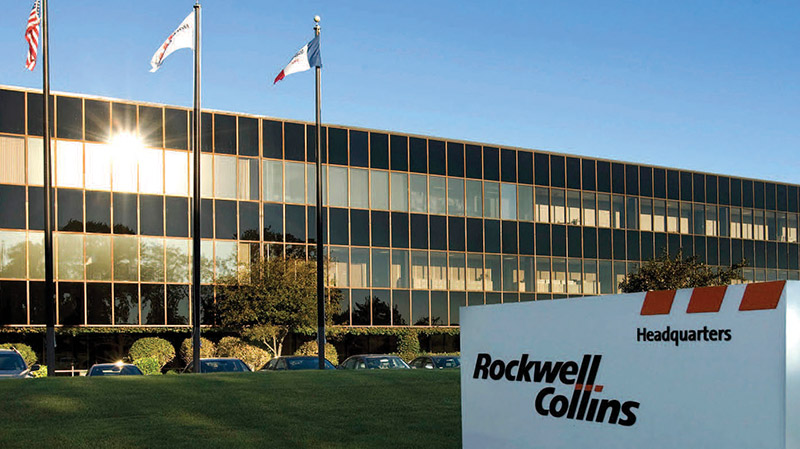
Rockwell Collins’ current headquarters in Cedar Rapids. PHOTO ROCKWELL
By Dave DeWitte
dave@corridorbusiness.com
The first organizational outline for the new Collins Aerospace Systems business to be formed through the acquisition of Rockwell Collins by United Technologies Corp. (UTC) emerged Feb. 22, although it may not be the last.
For the Corridor, the news was mixed. UTC and Rockwell Collins announced Collins Aerospace Systems will be headquartered 1,200 miles away in Palm Beach County, Florida. Some had hoped that Cedar Rapids, where Rockwell is headquartered, would have a shot at becoming the home for the new business unit.
Instead, the city was designated as the lead site for two of the six strategic business units that will make up the new organization: Avionics and Mission Systems.
Local economic development leaders remained calm.
Cedar Rapids Metro Economic Alliance Executive Director Doug Neumann said the announcement was in line with his expectations from discussions held with Rockwell Collins leaders in the preceding weeks. Although some senior leadership will be moving to Florida, he said it will be “a small number” based on those conversations.
Communications with Rockwell Collins on the effects of the acquisition have been good, according to Mr. Neumann.
“We continue to hear signals about room and opportunity to grow,” he said.
Employees were told that the headcount at the senior leadership office in Florida will be only 20 to 40, and that it will be the location for five of nine senior leadership functions, including human resources and communications, finance, legal, customer and account management, and strategy and development.
Three of the leadership functions – aftermarket services, information technology and operations, supply chain and quality – will be based in Charlotte, North Carolina. Engineering will be based in Windsor Locks, Connecticut.
Collins Aerospace will be about triple the current size of Rockwell Collins. The strategic business unit locations and related decisions were intended to minimize disruption, UTC said in a statement.
The plan will continue to evolve, leaders said, as integration planning continues. One reason the new organizational structure could prove temporary is because of ongoing discussions within UTC about breaking up the company after the Rockwell acquisition is completed. The status of those discussions was shared with Wall Street analysts at a recent Barclays investor conference.
“We’re not going to do anything with the portfolio until we get done with [Rockwell] Collins,” UTC Chairman, President and CEO Gregory Hayes said at the conference. “We can’t, because we’re exchanging UTX stock for a piece of Collins … but we continue to look.”
Mr. Hayes said the question being asked is, “Is UTC a more valuable property together? Or is UTC better off in three separate businesses?”
He said one business would be the aerospace business, with about $45-50 billion in revenues, while another would be UTC’s $12 billion Otis elevator business. A third would be UTC’s climate control business, with revenues of $17- $18 billion.
Mr. Hayes called them “tough, tough questions.”
“It’s clear that there’s no easy answer,” he added, citing listing some of the cost advantages of having the companies under one corporate umbrella, such as the ability to share services on a larger scale and cost “dis-synergies” to splitting up the company.
“I would say by the end of the year, we’ll come back and have some answers in terms of what we really think we should do with the portfolio long-term, and then we can have this discussion again,” he said.